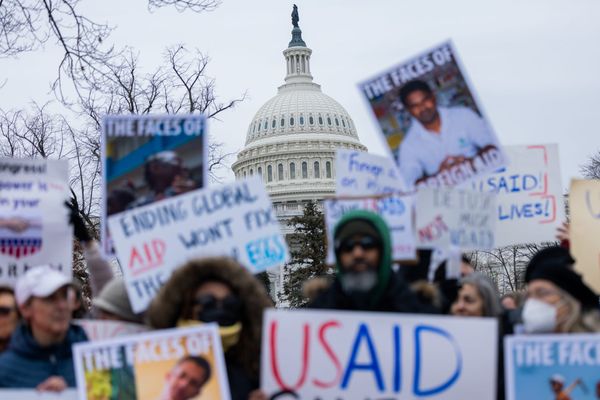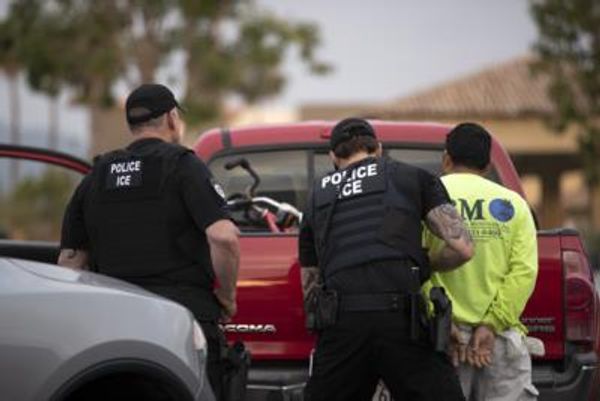
Ukrainians who choose to stay in Moldova rather than go elsewhere in Europe do so hoping they’ll be able to go home soon.
Most are from the south-eastern Ukrainian cities of Mykolaiv, Kherson and Odesa. Odesa is just 55km from the Moldovan border crossing of Palanca. They want to stay as close to their home cities as possible so the second the word gets out that it’s safe to return, they can catch a bus across the border.
“I’ll go by foot if I have to,” one woman from Odesa says.
Some refugees fled at when the invasion began and have been living in temporary accommodation — beds laid out in a gymnasium, bunk beds in a disused children’s home and student housing — for close to seven weeks. They pray they’ll be home in time for Easter.
Life on hold
Lena Mincheva, 21, fled from Mykolaiv and has postponed her marriage, her law degree and her plans to buy a house. She talks to me from a conference centre converted to refugee accommodation in Moldova’s capital, Chisinau. She’s been there with her mother and fiancé’s family — six women and one boy spanning three generations — for exactly one month.
There are some daily activities for children but aside from some dusty board games with missing pieces there’s not a lot to do as the rain pours down for days on end. She’s able to work part-time online. Meals are provided but the days stretch out endlessly.
A month is a long time to spend in limbo, Lena says. Her university course had been frozen because too many students didn’t have the time or will to study: “Everything is just on pause.”
The family spent close to 14 days in a bomb shelter but left after shelling intensified. They drove across the border in their electric car, worried it’s battery would go flat before they made it.

Splitting up the family was a tough decision. There are illegal ways to get Max, Lena’s fiancé, out of the country but he didn’t want to leave. “I want to be proud of him,” she says. Max’s aunt also can’t leave Ukraine as she works for a state bank.
Although Lena was in no rush to get married, she now plans to as soon as she and Max are reunited.
Max’s sister Marina Kutsenko is 16. She celebrated her birthday in a bomb shelter. Marina still does her schoolwork online, something she’s been doing since the start of the pandemic: “I was preparing for exams before I left, and I want to have those problems — not problems about war.”
Marina can explain weapons in detail and discuss military movements: “That is horrible because I’m 16 and so I should be interested in some different things like education, like my hairstyle, like books. But now I know about war, not about my friends [who] are in danger.”
Her seven-year-old brother, Mark, has started asking about when the war will end. “I don’t know what I should answer,” she says. “Yesterday he told me that we are refugees because we move abroad from a war. I’m shocked that he understands because he’s so young.”
Back in school but no exams
At a large public school in Chisinau which teaches kids Romanian — Moldova’s official language — and Russian, three students sit around a small hexagon table to speak to me. The school is brightly coloured with lots of plants and kids’ artwork lines the hallways.
Ivan, 15 and from Kyiv, Kirril, 13 and from Odesa, and Pieter, nine, from Chernivtsi, joined the school about a month ago after fleeing. Their parents let them talk to me on the condition we don’t discuss the war.
They say they’ve settled into the school well. Although making friends in a new place is always a challenge, they say the other students have been welcoming. They’re only studying in Russian as they don’t speak Romanian.
“School is better in person,” Ivan says. He and Kirril enjoy classes in Russian literature — something they’ve never been taught in Ukraine. “But I’ll finish school in Ukraine because my mother and father are there.” Pieter says: “I want to go to Ukraine because there is my home. There is my father there.”
Although the boys are attending school — one of a dozen Ukrainian students — they’re not enrolled in the Moldovan system, Ministry of Education general secretary Adriana Cazacu says. “They’re observers and they’re welcome,” she says, but they won’t sit any exams.
Under strain with limited capacity
Moldova isn’t a popular destination for refugees — about 26,000 Ukrainians have passed through its borders since February 24 but just a fraction stay, transiting instead to the EU.
Just 100 Ukrainians have applied for asylum, and the number of Ukrainians still in the country isn’t known — Ukrainians can stay for 90 days without a visa. Although Moldova isn’t hosting nearly as many refugees as EU nations like Poland — Poland’s refugee intake has already superseded the entire Moldovan population at more than 2.5 million — volunteers say they’re worried about their capacity to take on more.
Volunteer and sports coach Marian Stan coordinates support at a Chisinau gymnasium converted to refugee accommodation. While refugees wait for onsite student accommodation to be renovated, about 20 sleep in beds lined up on the basketball court. There’s limited natural light. People lie on the beds with their phones or sit in a circle on plastic chairs in the shadows, saying hardly anything.
Stan says there are plenty of donations — farmers send trays of apples and NGOs have helped organise beds and clothes — but he’s worried about manpower. “Already plenty of volunteers have left, and I think more will leave,” he says. “I don’t know if we can cope with another wave of refugees.”
Moldova struggles to support its own people. Moldova is one of the poorest countries in Europe with a limited social support system, and about 13% of its population lives in poverty. Those below the poverty line receive a monthly government stipend, but it’s barely enough to cover grocery costs. One charity organisation, The Moldova Project, relies on international grants and donations to get many of those living in poverty access to help and support.
We visit a few of its clients. They’re trying to arrange livestock to help the families become self-sufficient. The families live in clay or cinderblock houses with brightly coloured blankets and cloths lining the walls. One pregnant woman struggles to afford medical care.
Depression sets in
In normal circumstances there’d be an air of celebration in the refugee accommodation Stan coordinates. A guest has just had a baby — she fled after seeing the attacks on the maternity hospital in Mariupol and has given birth in a nearby hospital on the day we arrive. It’s a healthy boy.
But the woman’s mother isn’t celebrating. Early into the crisis she wore lipstick and colourful scarves, but now she sits slumped in an old T-shirt. She doesn’t want to tell her story again. Due to COVID-19 restrictions, she can’t visit her new grandson in hospital.
Another resident, Karina, looks like she’s lost a lot of weight. She sits in the shadows and insists on brushing her hair before we speak. Her pants hang loose, though her 11-month-old baby, Amelia, is chubby and happy, and her seven-year-old son is coping.
“In the beginning, we thought everything would be OK, but the kids started to get sick [in the bunkers],” Karina says. She tries to smile, but there are dark shadows under her eyes and she looks on the brink of tears. Amelia turns one on April 23. Karina hopes she’ll be back home in Odesa by then with her husband.
But Russia is repositioning itself in the east, so going home soon is unlikely.







